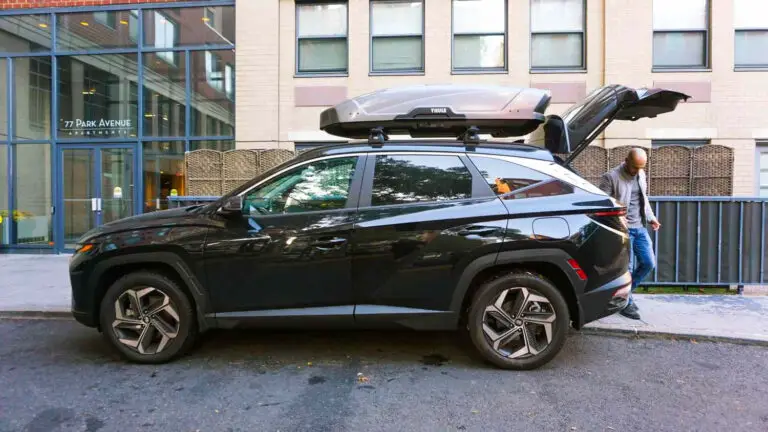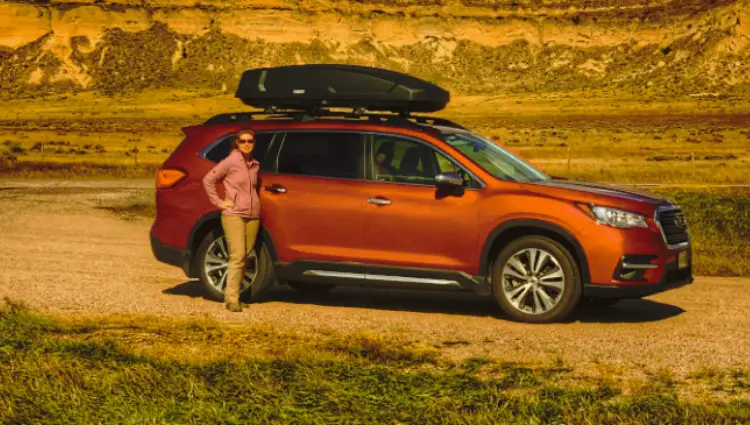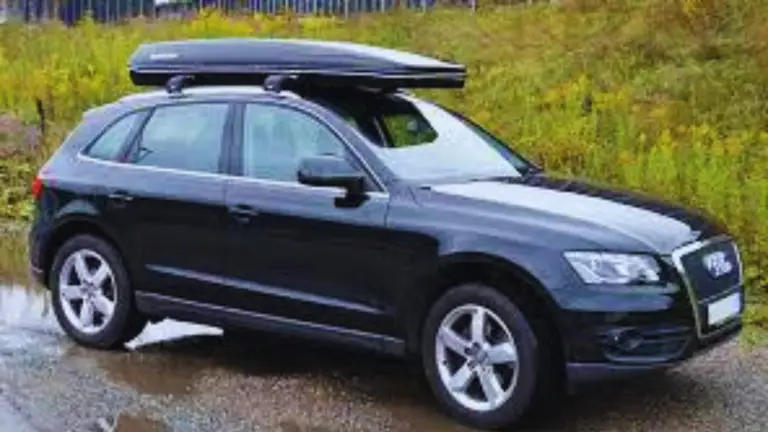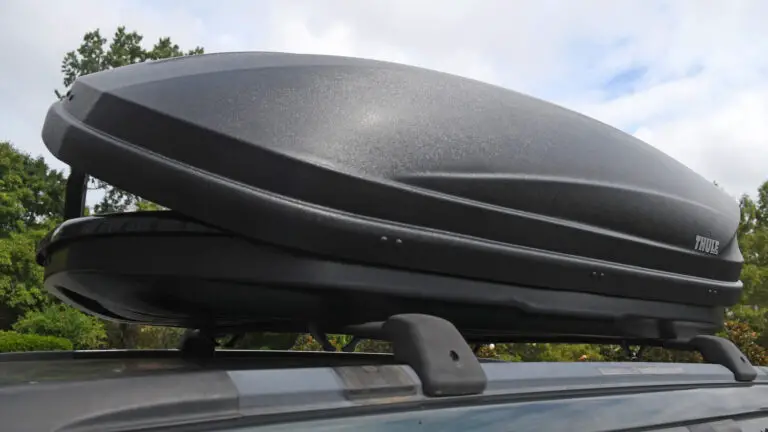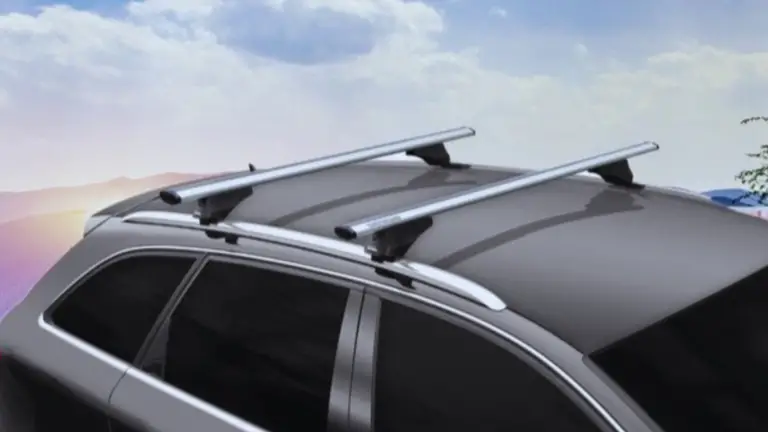Are you planning a camping trip and unsure whether to choose a rooftop tent or a ground tent? Both have their advantages and disadvantages, so it’s important to consider your personal needs and preferences before making a decision. In this article, we’ll explore the differences between rooftop tents and ground tents, and help you choose the best option for your camping adventure.
What is a Rooftop Tent?
A rooftop tent is mounted on the top of a vehicle, usually an SUV or a truck, providing a comfortable sleeping space and protection from the elements while on the road. Rooftop tents are becoming increasingly popular among campers due to their convenience, safety, and comfort.
Rooftop Tent vs Ground Tent: Which One Wins the Comfort Battle?
- Rooftop tents offer convenience, safety, and comfort but are expensive, heavy, and require setup.
- Ground tents are versatile, cost-effective, and easy to set up but have moisture and bug issues with limited space.
- Factors to consider when choosing include camping destination, vehicle compatibility, weather conditions, capacity, and durability.
What is a Ground Tent?
A ground tent is the traditional type of tent that is set up on the ground. Ground tents come in various shapes and sizes and are designed to provide shelter and protection from the elements while camping. They are versatile and can be used in a variety of camping situations.
Pros and Cons of Rooftop Tents
Advantages of Using a Rooftop Tent
- Convenience: Rooftop tents are easy to set up and take down, making them ideal for campers who are always on the move.
- Safety: Rooftop tents provide a higher level of safety compared to ground tents, keeping you off the ground and away from animals, flooding, and other natural disasters.
- Comfort: Rooftop tents are designed to provide a comfortable sleeping space that is elevated off the ground, with a mattress and bedding ensuring a good night’s sleep.
Disadvantages of Using a Rooftop Tent
- Cost: Rooftop tents are more expensive than ground tents and require a specialized mounting system and other equipment, which adds to the cost.
- Setup: While rooftop tents are easy to set up, they can be more complicated than ground tents due to the mounting system. You need to make sure that the tent is properly secured to your vehicle to avoid accidents.
- Weight Restrictions: Rooftop tents have weight restrictions, meaning you cannot carry too much gear or equipment with you, which can be problematic for long camping trips.
Pros and Cons of Ground Tents
Advantages of Using a Ground Tent
- Versatility: Ground tents are versatile and can be used in a variety of camping situations, accommodating a range of camping gear.
- Cost: Ground tents are more affordable than rooftop tents and can be set up with just a few poles and stakes.
- Ease of Setup: Ground tents are easy to set up and take down and do not require any specialized equipment.
Disadvantages of Using a Ground Tent
- Moisture: Ground tents are more susceptible to moisture than rooftop tents, getting wet if it rains, which can make the camping experience less enjoyable.
- Bugs: Ground tents are more prone to bugs and other critters, requiring proper sealing to keep insects out.
- Limited Space: Ground tents have limited living space and storage compared to rooftop tents, which can be cramped with a lot of gear.
Comparison of Rooftop Tents and Ground Tents
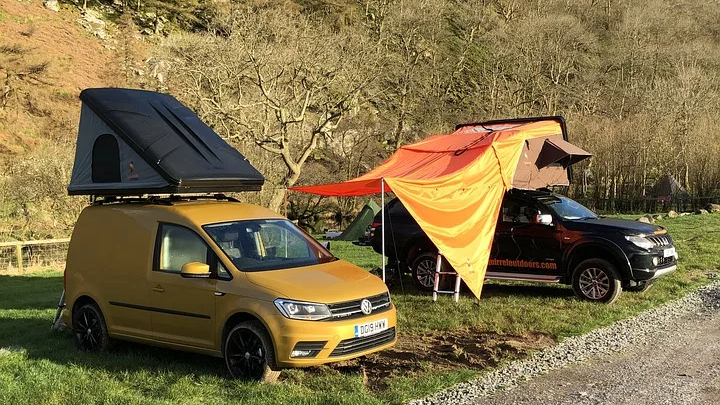
Cost Comparison
Rooftop tents are more expensive than ground tents, ranging from $1,000 to $3,000 or more depending on the brand and features. Ground tents are more affordable and can be purchased for as little as $50.
Setup Time and Ease of Use Comparison
Rooftop tents are easy to set up and take down, but they require a specialized mounting system that can be more complicated than setting up a ground tent. Ground tents are easy to set up and take down and do not require any specialized equipment.
Additional Equipment Needed
Rooftop tents require a specialized mounting system and other equipment, such as a ladder and crossbars. Ground tents do not require any additional equipment and can be set up with just a few poles and stakes.
| Factor to Consider | Rooftop Tent | Ground Tent |
|---|---|---|
| Camping Destination and the Terrain | Better for rugged terrain or uneven ground | Better for flat and even ground |
| Vehicle Type and Compatibility | Requires a compatible vehicle and mounting system | Compatible with most vehicles |
| Weather Conditions | Less suitable for rain or inclement weather | Better for rain or inclement weather |
| Capacity and Space Requirements | Provides more living space and storage | Limited living space and storage |
| Durability and Maintenance | More durable and requires less maintenance | Requires more maintenance and may need to be replaced more frequently |
Factors to Consider When Choosing Between a Rooftop Tent and Ground Tent
Camping Destination and the Terrain
If you are camping in a rugged terrain or an area with a lot of rocks and uneven ground, a rooftop tent may be a better option. Ground tents are more suited for flat and even ground.
Vehicle Type and Compatibility with Rooftop Tent
Not all vehicles are compatible with rooftop tents. You need to make sure that your vehicle can support the weight of the tent and that you have the necessary mounting system.
Weather Conditions and Their Effect on the Tent Type
If you are camping in an area with a lot of rain or other inclement weather, a ground tent may be a better option. Rooftop tents are more susceptible to moisture and can be uncomfortable if it rains.
Capacity and Space Requirements
If you are camping with a large group of people or have a lot of gear, a rooftop tent may be a better option. Rooftop tents provide more living space and storage compared to ground tents.
Durability and Maintenance
Rooftop tents are more durable and require less maintenance compared to ground tents. Ground tents require more maintenance and may need to be replaced more frequently.
Different Camping Situations and Which Tent Type is Best Suited for Them
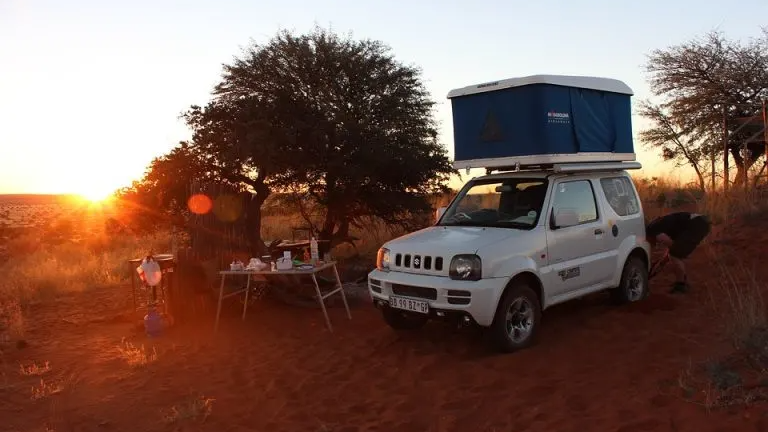
Car Camping and the Best Tent Type for It
If you are car camping, a rooftop tent is a great option, providing a comfortable sleeping space and allowing you to camp anywhere your vehicle can go.
Backpacking and the Best Tent Type for It
If you are backpacking, a ground tent is a better option, as it is lightweight and easy to carry, making it ideal for long hikes.
Family Camping and the Best Tent Type for It
If you are camping with your family, a rooftop tent is a great option, providing more living space and storage, which is important when camping with kids.
Comparison of Rooftop Tents and Ground Tents in Terms of Comfort
Comparison of Sleeping Comfort
Rooftop tents provide a more comfortable sleeping space compared to ground tents, equipped with a mattress and bedding for a good night’s sleep.
Comparison of Living Space and Storage
Rooftop tents provide more living space and storage compared to ground tents, with a built-in storage system keeping your gear organized and easily accessible.
Safety Considerations
Rooftop Tent Safety Considerations
When using a rooftop tent, you need to make sure that it is properly secured to your vehicle. You also need to be careful when climbing up and down the ladder.
Ground Tent Safety Considerations
When using a ground tent, you need to make sure that it is properly sealed to keep insects and other critters out. You also need to be aware of any potential hazards in the area, such as poisonous plants or animals.
Personal Story: My Experience with a Rooftop Tent
As an avid camper and traveler, I have tried both ground tents and rooftop tents. While ground tents are a classic and reliable option, my experience with a rooftop tent has been unforgettable. On a recent camping trip, my friends and I decided to rent a rooftop tent for our SUV. The convenience of not having to set up a tent on the ground was a game-changer. We were able to park at our campsite and easily pop open the rooftop tent in a matter of minutes.
But the real game-changer was the sleeping comfort. The rooftop tent had a thick foam mattress that was more comfortable than my own bed at home. I slept soundly through the night without any discomfort or aches. Additionally, we had a great view of the stars and the surrounding landscape from our elevated position.
While there are some drawbacks to rooftop tents, such as the cost and weight restrictions, the convenience and comfort made it worth it for our trip. I would highly recommend a rooftop tent to anyone looking for a unique and comfortable camping experience.
Tips for Maintaining and Storing Both Types of Tents
Proper Maintenance and Storage Tips for Rooftop Tents
To maintain your rooftop tent, you need to clean it regularly and make sure that it is properly stored when not in use. You also need to inspect the mounting system and other equipment for any signs of wear or damage.
Proper Maintenance and Storage Tips for Ground Tents
To maintain your ground tent, you need to clean it regularly and make sure that it is properly stored when not in use. You also need to inspect the poles and stakes for any signs of wear or damage.
Conclusion and Final Thoughts
Both rooftop tents and ground tents have their pros and cons, so the best tent type for you will depend on your personal needs and preferences. Before making a decision, consider the camping destination, terrain, weather conditions, vehicle type, capacity and space requirements, and durability and maintenance. With the right tent type and gear, you can enjoy a comfortable and memorable camping experience.
Rooftop Tent vs Ground Tent: FAQs
What are the main differences?
The primary differences are the location – a rooftop tent mounts on your vehicle roof while a ground tent pitches on the ground. Rooftop tents provide elevated sleeping off the ground and easy access without having to get dressed. Ground tents offer more interior space generally.
Are rooftop tents more expensive?
Yes, rooftop tents are usually more expensive than similarly sized ground tents due to additional structural components needed for mounting. Base models start around $1000-1500 compared to $100-500 for entry-level ground tents.
Which is better for car camping?
Rooftop tents are highly suited for car camping – they transport and set up easily on your vehicle. This makes spontaneous stops and camping more flexible. Ground tents require unloading and finding a flat pitch site.
Do rooftop tents leak?
Modern rooftop tents are fully waterproofed but condensation can accumulate, especially in humid conditions without ventilation. Proper sealing and interior breathability help prevent leaks. Ground tents can also leak if seals fail or are not waterproofed.
How much weight do they add?
Rooftop tent weight varies significantly by model from 100-300+ pounds. This additional weight reduces cargo capacity and gas mileage slightly. Consider your vehicle’s roof load limit.
Can you use a rooftop tent year-round?
Yes, though cold weather camping requires additional insulation like sleeping pads and warm bedding. Condensation may be greater so ventilation and interior breathability remain important.
Is roof access easier than a ground tent?
Roof access provides a convenient alternative to getting fully dressed to go in/out of a ground tent late at night. However, climbing a ladder or into the roof requires some care versus rolling out of a ground tent.


